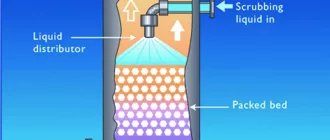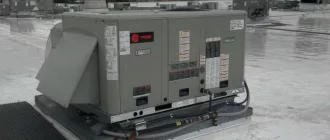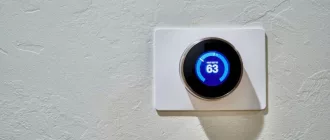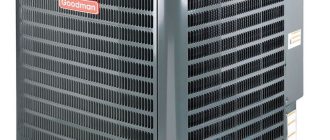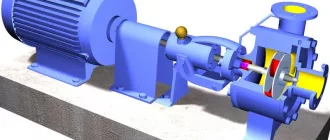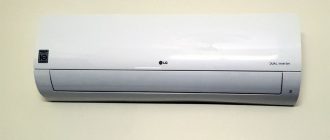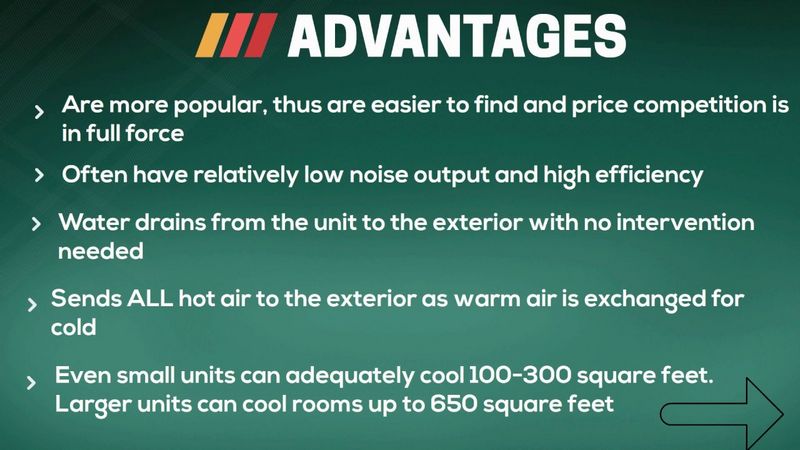
What is the disadvantage of inverter AC?
Inverter AC technology is becoming increasingly popular due to its energy-saving benefits. However, before you invest in an inverter AC, it’s important to consider the disadvantages it may come with.
One major disadvantage of inverter ACs is their initial expensive price tag. Inverter ACs tend to be more expensive than regular ACs, making them a less budget-friendly option for some consumers. Additionally, their installation cost can also be higher due to the complexity of the inverter technology.
Another drawback of inverter ACs is the noise they produce. While inverter ACs are generally quieter than regular ACs, they still make some noise. This can be especially bothersome if you plan on installing the AC in a bedroom or a room where you need silence.
Additionally, while inverter ACs are known for their energy efficiency, their power consumption can still be a concern. Although they consume less energy compared to regular ACs, they may still contribute to higher electricity bills if not used wisely.
In conclusion, inverter ACs have their fair share of disadvantages that need to be considered before making a purchase. The initial cost, installation expenses, noise, and power consumption are all important factors that should be taken into account. It’s essential to weigh the pros and cons and evaluate your specific needs and budget before deciding on an inverter AC.
High Initial Cost
One of the disadvantages of inverter AC is its high initial cost. Inverter ACs are generally more expensive than non-inverter ACs. The inverter technology used in these ACs makes them more energy-efficient, which leads to reduced electricity consumption and lower electricity bills. However, the initial cost of purchasing and installing an inverter AC is higher compared to non-inverter ACs.
Additionally, the maintenance and repair costs of inverter ACs are usually higher than non-inverter ACs. The inverters used in these ACs require regular maintenance to ensure their proper functioning. If any component of the inverter gets damaged or malfunctions, it can be expensive to replace or repair. This can add to the overall cost of owning an inverter AC.
Furthermore, another disadvantage of inverter ACs is the noise they produce. Inverter ACs tend to be quieter during operation compared to non-inverter ACs. However, the internal components of inverter ACs, such as compressors and fans, can still generate some noise. If you are sensitive to noise or require a quieter environment, this can be a drawback.
In conclusion, while inverter ACs offer advantages such as energy efficiency and cost savings in the long run, the high initial cost is a notable disadvantage. Additionally, the maintenance and repair costs, as well as the potential noise generated by inverter ACs, should be taken into consideration before investing in one.
Requires Proper Installation
One disadvantage of inverter ACs is that they require proper installation to function efficiently. Improper installation can lead to lower cooling efficiency, increased energy consumption, and higher noise levels.
During installation, it is important to ensure that the indoor and outdoor units are correctly positioned and connected. The refrigerant lines should be properly insulated to prevent heat loss, and the drainage system should be designed to effectively remove condensate.
In addition, the inverter AC should be installed in a location that allows for adequate airflow and ventilation. This will help in maintaining optimal cooling performance and energy efficiency.
Proper installation also involves setting up the inverter AC’s controls and settings according to the specific requirements of the space. This includes configuring the temperature, fan speed, and other parameters to achieve the desired comfort level.
Regular maintenance is also crucial for the efficient operation of an inverter AC. This includes cleaning or replacing the air filters, checking and cleaning the evaporator and condenser coils, and inspecting the refrigerant level. Failure to perform regular maintenance can lead to reduced cooling performance, increased energy consumption, and potential breakdowns.
Overall, the proper installation and maintenance of an inverter AC are important considerations to avoid the disadvantages associated with inefficiency, increased energy consumption, and excessive noise levels.
Regular Maintenance Needed
Inverter ACs require regular maintenance to keep them running efficiently. This can be an expensive and time-consuming process. Unlike regular ACs, inverter ACs have complex components that need to be regularly cleaned and serviced to ensure optimal performance.
One major maintenance task is cleaning the air filters. Inverter ACs have filters that trap dust, dirt, and other particles from the air. Over time, these filters can become clogged, reducing the efficiency of the AC and increasing noise levels. Regularly cleaning and replacing these filters is essential to maintain the performance and energy efficiency of your inverter AC.
Another important maintenance task is checking and cleaning the condenser coils. These coils are responsible for transferring heat from the inside of the AC to the outside environment. Over time, these coils can accumulate dirt and debris, reducing their heat transfer ability. Cleaning the condenser coils regularly will ensure that heat transfer remains efficient and prevent energy consumption from increasing.
Inverter ACs also require regular inspection of electrical connections and components. This is necessary to identify any potential issues or malfunctions that may arise. Additionally, annual servicing by a professional is recommended to ensure that all components are working properly and to address any potential problems before they become major issues.
Overall, the regular maintenance requirements of inverter ACs can be a disadvantage for some buyers. It involves additional costs, time, and effort compared to regular ACs. However, proper maintenance is crucial for the longevity and efficient operation of your inverter AC, so it is an important consideration before buying.
Noise Level
Noise can be a major disadvantage of inverter AC units. Compared to conventional AC units, inverter ACs tend to be quieter. However, they still produce a certain level of noise that can be bothersome, especially if the AC is installed in a bedroom or a living room.
One of the reasons why inverter ACs are noisier is because they contain more components than conventional ACs. These components, such as the inverter itself and the variable speed compressor, can generate noise during operation. Additionally, the continuous adjustment of the compressor speed can also contribute to the overall noise level.
Another factor that can affect the noise level of an inverter AC is the quality of the installation. Poor installation can lead to vibrations and rattling noises, which can be annoying and disruptive.
It’s worth noting that noise level is not only a matter of comfort but also a consideration for those who have sensitive hearing or live in close proximity to neighbors. In such cases, it may be necessary to invest in additional soundproofing measures or consider alternative cooling options.
Power Consumption
Power consumption is a significant disadvantage of inverter ACs. Inverter ACs tend to be more expensive to purchase compared to non-inverter ACs. However, the running costs can be lower due to their energy-efficient technology. Inverter ACs use variable speed compressors that adjust their power usage based on the cooling requirements of the room, resulting in reduced power consumption.
Despite their energy-saving capabilities, inverter ACs still consume more power compared to non-inverter ACs. This higher power consumption can lead to increased electricity bills, especially if the AC is used for extended periods or in multiple rooms. It is essential to consider the electricity costs and the impact on your monthly budget before purchasing an inverter AC.
Additionally, the maintenance costs of inverter ACs can also contribute to their higher overall expense. Inverter ACs have more complex technology and require regular maintenance to ensure optimal performance. This can involve cleaning the filters, coils, and fan blades, as well as checking the refrigerant levels. Neglecting regular maintenance can lead to reduced efficiency and increased power consumption, further adding to the expenses.
Another disadvantage of inverter ACs is the noise they produce. Although newer models of inverter ACs are designed to be quieter, they can still generate noise when the compressor is running at high speeds. This noise can disrupt sleep or other activities and may be a concern for individuals who require a quiet sleeping or working environment.
Overall, while inverter ACs offer advantages such as energy efficiency and precise temperature control, it is important to consider their higher power consumption and potential maintenance costs before making a purchasing decision.
Compatibility with Existing Ductwork
One of the disadvantages of inverter AC is its compatibility with existing ductwork. Traditional AC systems are designed to work with a centralized ductwork system, which distributes cool air throughout the building. However, inverter AC systems may not be compatible with existing ductwork, especially if the ducts are too old or have not been properly maintained.
If the ductwork is not compatible, it may require additional modifications or replacement, which can be both time-consuming and expensive. This can add to the overall cost of installing an inverter AC system.
In addition, compatibility issues with existing ductwork can result in inefficient cooling. Improperly sized or poorly maintained ducts can lead to air leakage, reducing the overall cooling efficiency and increasing energy consumption.
Another disadvantage of compatibility issues is the potential increase in noise levels. Older ductwork systems may not be designed to handle the increased airflow and pressure generated by inverter AC units, resulting in increased noise levels during operation.
Therefore, it is important to consider the compatibility of existing ductwork before investing in an inverter AC system. It is recommended to consult with a professional HVAC technician to assess the compatibility and potential modifications that may be required for proper installation.
May Require Additional Wiring
One of the potential disadvantages of inverter AC is that it may require additional wiring during installation. Unlike conventional air conditioners, which typically operate on a fixed voltage, inverter ACs require a dedicated circuit for their power supply. This means that if you are replacing an old AC unit with an inverter AC, you may need to hire an electrician to install the necessary wiring.
The additional wiring can be costly and time-consuming. It may also require modifications to your home’s electrical system, which can further increase the installation expenses. In addition, the installation process itself can be disruptive, as it may involve wall penetrations and drilling.
Furthermore, the maintenance and repair of an inverter AC’s electrical system can also be more complicated and expensive compared to conventional ACs. The complex electronics and circuitry of inverter ACs require specialized knowledge and skills to troubleshoot and repair. This means that if there is a problem with the electrical system of your inverter AC, you may need to hire a professional technician, which can be costly.
In summary, the requirement for additional wiring during the installation of an inverter AC is a potential disadvantage. It can be expensive, time-consuming, and may require modifications to your home’s electrical system. Additionally, the maintenance and repair of the electrical system can be more complex and costly compared to conventional ACs. Therefore, it is important to consider these factors before buying an inverter AC.
Cannot Handle Extreme Climate Conditions
One major disadvantage of inverter AC is that it cannot handle extreme climate conditions. In regions with extremely high or low temperatures, the inverter AC may struggle to provide efficient cooling or heating.
In such conditions, the inverter AC may not be able to reach the desired temperature quickly or maintain it consistently. This can lead to discomfort for the users, especially during extreme weather conditions.
Moreover, in extreme climates, the inverter AC may consume more energy to maintain the desired temperature, resulting in higher electricity bills. The higher energy consumption can offset the energy-saving benefits that inverter ACs usually offer.
Additionally, the extreme climate conditions can also put a strain on the inverter AC, leading to increased wear and tear and the need for regular maintenance. This can add to the overall cost of owning an inverter AC, making it more expensive in the long run.
Furthermore, the installation of an inverter AC in extreme climate conditions may require additional precautions and modifications, making the installation process more complex and potentially costly.
Lastly, the noise produced by the inverter AC may be more noticeable in extreme climate conditions, especially when operating at high speeds to maintain the desired temperature. This noise can be disruptive and annoying for users.
Considering these factors, it is important to evaluate the climate conditions of your region and consider the potential challenges that inverter ACs may face before making a purchasing decision.
Size and Weight
Another disadvantage of inverter ACs is their size and weight. Inverter ACs typically have a larger and bulkier design compared to non-inverter ACs. This can be a problem if you have limited space in your room or if you are trying to install the AC in a small area.
Moreover, the larger size and weight of inverter ACs also make them difficult to transport and install. If you are planning to move the AC to a different location or if you need to install it in a high-rise building, you may face some challenges due to its size and weight.
Additionally, the increased size and weight of inverter ACs may result in higher installation costs. You may need additional support or reinforcement to properly install the unit, which can add to the overall expense.
Therefore, it is important to consider the size and weight of the inverter AC before making a purchase decision. Ensure that you have enough space and the necessary resources for its installation and maintenance.
Spare Parts Availability
One of the disadvantages of inverter AC is the availability of spare parts. Due to the complex nature of the inverter technology, the spare parts required for its repair or maintenance can be harder to find and may not be readily available in the market.
Since inverter ACs are relatively new in the market, their components and spare parts may not be as commonly stocked by repair shops or retailers as compared to conventional ACs. This can lead to longer waiting times for spare parts to be sourced or even higher prices for the few available options.
Furthermore, the spare parts for inverter ACs can be more expensive than those for traditional ACs. This is because the components used in inverter ACs are generally more advanced and sophisticated, requiring specific materials and manufacturing processes. As a result, the cost of replacing or repairing these parts can be significantly higher, adding to the overall cost of owning and maintaining an inverter AC.
It is important to consider the availability and cost of spare parts before purchasing an inverter AC. This will help you evaluate whether you can easily get the required components for repair and maintenance, as well as calculate the potential expenses associated with any future repairs.
Dependence on Electricity Supply
One of the disadvantages of inverter AC is its dependence on electricity supply. Inverter ACs require a constant and uninterrupted supply of electricity to function properly. If there is a power cut or an interruption in the electricity supply, the inverter AC may not work efficiently or may stop working altogether.
This dependence on electricity can be a major drawback, especially in areas with frequent power cuts or unstable electricity supply. It can lead to inconvenience, discomfort, and disruption in cooling or heating service.
Furthermore, the energy consumption of inverter ACs is higher compared to non-inverter ACs. Inverter ACs need a certain amount of energy to convert the incoming alternating current (AC) into direct current (DC) and vice versa. This continuous power conversion process can result in higher energy consumption, which can lead to increased electricity bills.
Another related disadvantage of the dependence on electricity supply is the noise level of inverter ACs. Inverter ACs tend to produce more noise than non-inverter ACs. The noise can be attributed to the increased load on the compressor and the continuous operation of the inverter technology.
Additionally, the maintenance and repair of inverter ACs can be expensive due to the complex technology involved. Inverter ACs have intricate components and circuits that require specialized knowledge and skills for servicing and repair. This can add to the overall cost of owning and maintaining an inverter AC.
Lastly, the installation of inverter ACs can be more complicated and expensive compared to non-inverter ACs. Inverter ACs require proper sizing, positioning, and electrical connections to function optimally. Improper installation can lead to performance issues, reduced efficiency, and potential damage to the unit.
| Dependence on Electricity Supply | Inverter ACs require a constant and uninterrupted supply of electricity to function properly. |
| Higher Energy Consumption | Inverter ACs consume more energy compared to non-inverter ACs. |
| Noise Level | Inverter ACs tend to produce more noise than non-inverter ACs. |
| Expensive Maintenance | The maintenance and repair of inverter ACs can be expensive. |
| Complicated Installation | The installation of inverter ACs can be more complicated and expensive. |
Not Suitable for Small Spaces
One disadvantage of inverter ACs is that they may not be suitable for small spaces. Inverter ACs require proper installation and enough space for the air to circulate. This means that if you have a small room or an apartment with limited space, an inverter AC may not be the ideal choice.
Additionally, inverter ACs tend to have higher energy consumption compared to regular ACs. While they are more energy-efficient when they are running at full capacity, they can consume more energy at low cooling loads, which is common in small spaces.
Another disadvantage of inverter ACs is that they can be more expensive than regular ACs. The technology used in inverter ACs is more advanced and sophisticated, which results in a higher price tag. If you are on a tight budget or don’t want to spend extra money, a regular AC might be a more suitable option.
Noise can also be a disadvantage of inverter ACs, especially when compared to regular ACs. Inverter ACs typically have multiple speed settings, which allows them to operate at different capacities depending on the cooling needs. This can result in more noise compared to regular ACs that have fixed speed settings.
In conclusion, while inverter ACs offer many advantages such as energy efficiency and better temperature control, they may not be suitable for small spaces due to their installation requirements, higher energy consumption, higher price, and potential noise levels.
Difficult to Move
One disadvantage of inverter AC is that it can be difficult to move once it is installed. Unlike portable AC units, which can be easily moved from one room to another, inverter AC units require professional installation and are typically mounted on the wall or ceiling.
This installation process can be time-consuming and may require modifications to the wall or ceiling to accommodate the unit. Once installed, moving the inverter AC unit to a different location can be challenging and may require additional professional assistance.
Furthermore, the weight and size of inverter AC units can make them cumbersome to handle, making it difficult for individuals to move them on their own. This can be a disadvantage for those who prefer the flexibility of being able to move their AC unit to different rooms.
In addition to the installation challenges, inverter AC units also tend to be more expensive compared to portable units. Therefore, if you anticipate the need to move your AC unit frequently, it may be more cost-effective to opt for a portable AC unit instead.
Overall, the difficulty of moving an inverter AC unit is a significant disadvantage to consider before making a purchase. It is important to evaluate your specific needs and circumstances to determine if this is a drawback that you are willing to compromise on.
Installation Process Takes Time
One disadvantage of inverter ACs is that the installation process can take time. Unlike regular AC units, which can usually be installed relatively quickly, inverter ACs require more complex installation procedures.
Because inverter ACs are designed to be more energy efficient, they often have additional components that need to be properly installed. This includes sensors, control panels, and other electronic components that are necessary for the AC unit to function optimally.
Additionally, the installation of inverter ACs may also require modifications to the electrical wiring in your home. This can add to the installation time and may require the assistance of a professional electrician.
While the installation process may take longer than traditional AC units, it is important to note that the benefits of inverter technology, such as reduced energy consumption and noise levels, make it worth the investment. However, it is essential to properly maintain and service your inverter AC to ensure its long-term performance and efficiency.
Q&A:
What are the disadvantages of using an inverter AC?
There are a few disadvantages of using an inverter AC. Firstly, inverter ACs are usually more expensive than non-inverter ACs. Secondly, they may have a higher maintenance cost and require more frequent servicing. Thirdly, inverter ACs can produce more noise compared to non-inverter ACs. Lastly, the technology used in inverter ACs is relatively new, so there may be a limited number of service centers and technicians available for repairs.
Are inverter ACs more energy efficient than non-inverter ACs?
Yes, inverter ACs are generally more energy efficient than non-inverter ACs. The inverter technology allows the compressor to adjust its speed based on the desired temperature, which helps save energy. In comparison, non-inverter ACs have fixed-speed compressors that operate at full capacity regardless of the cooling requirement, resulting in higher energy consumption.
Do inverter ACs require more maintenance?
Yes, inverter ACs may require more maintenance than non-inverter ACs. The advanced technology used in inverter ACs, such as the variable-speed compressor, can be more complex and may require regular servicing to ensure optimal performance. Additionally, the filters of inverter ACs may need to be cleaned or replaced more frequently to maintain efficient airflow.
What is the noise level of inverter ACs?
Inverter ACs can produce more noise compared to non-inverter ACs. This is because the variable-speed compressor of an inverter AC operates at different speeds to regulate the cooling, which can create vibrations and noise. However, the noise levels can vary depending on the brand, model, and specific installation conditions of the inverter AC.
Are there any disadvantages with the availability of service centers for inverter ACs?
Yes, there may be a limited number of service centers and technicians available for repairs of inverter ACs. Since inverter ACs use relatively new technology, not all service centers may be equipped to handle repairs or provide spare parts for these units. This can result in longer wait times for repairs or difficulty finding qualified technicians in some areas.
What are some of the disadvantages of using an inverter AC?
There are several disadvantages to consider before purchasing an inverter AC. One of the main drawbacks is the initial cost, as inverter ACs are generally more expensive compared to non-inverter models. In addition, inverter ACs require a stable and reliable power supply, which can be a problem in areas with frequent power outages. Furthermore, inverter ACs are more complicated and have more electronic components, which may increase the chances of malfunction or breakdown. Lastly, if maintenance and repairs are required, it may be more difficult and expensive to find technicians who are trained to work on inverter ACs.

